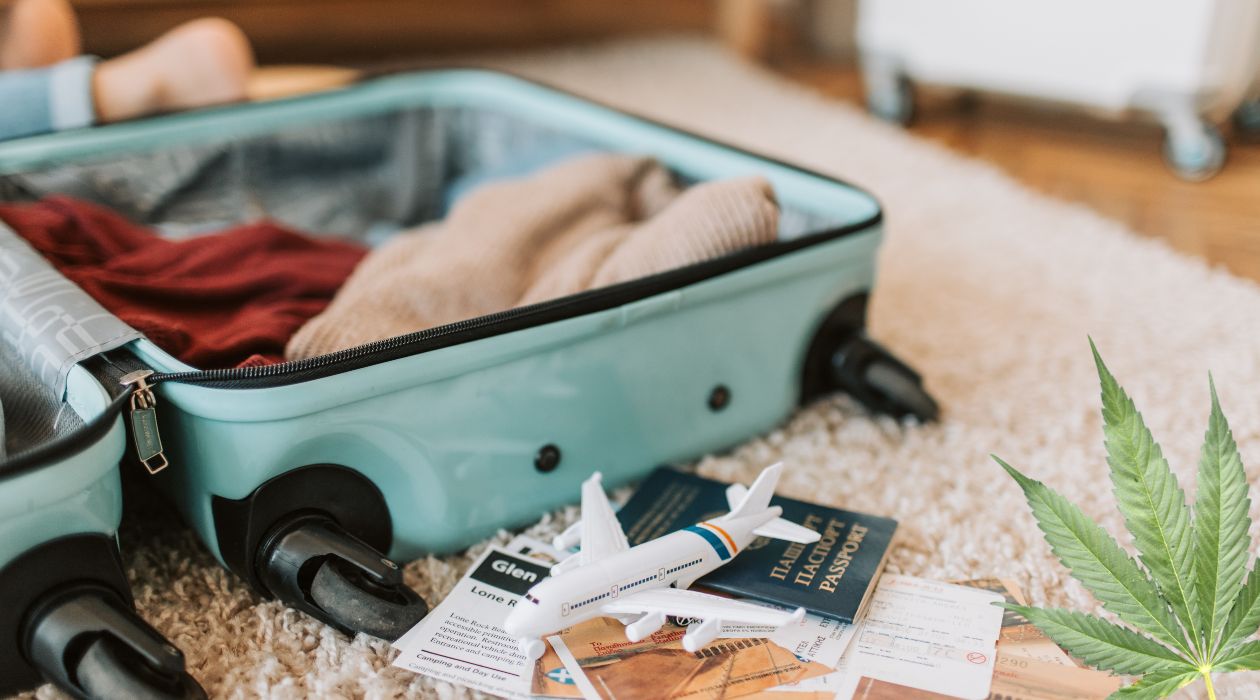
Is Hemp the Future of Luggage Fabric? Testing 3 Sustainable Suitcases
In a world where sustainability and performance must go hand in hand, material innovation has become the holy grail of luggage design. Among the rising stars in eco-friendly textiles, hemp is quietly making a powerful case for itself. Naturally strong, low-impact, biodegradable, and impressively durable, hemp is shedding its outdated image and stepping onto the runway — and now, into the airport.

But does hemp have what it takes to stand up to the wear and tear of modern travel? Is it just a marketing gimmick, or could it truly revolutionize how we design and use our suitcases?
At Koora, we try to put three hemp-based or hemp-blended luggage options to the test to find out. Here’s what we learned about the potential of hemp as the next big thing in sustainable travel gear — and why it might be the future your suitcase has been waiting for.
Why Hemp?
Before we get into the suitcases, it is time to find out why hemp is the hottest topic of the year 2025.
Hemp can be grown faster than cotton or polyester, consumes little water, and does not demand the use of pesticides. It enriches the soil, sequesters CO2, and has the potential to produce a yield of 250 per cent fibre per acre compared to cotton. It is one of the most eco-friendly crops in the world.
Yet hemp is not only beneficial to the environment, it is inherently tough, UV resistant, antibacterial and breathable. And as made in textiles, it takes on a shaggy yet desirable aspect that improves with age.
Hemp is the subject of increased interest by luggage designers due to its unusual combination: environmentally-friendly functionality. However, will it substitute the synthetic shells, ballistic nylons and the plastic panels that are prevalent in the traveling equipment these days?
Testing 3 Hemp-Based Sustainable Suitcases
To evaluate how hemp performs in real travel scenarios, we tested three hemp or hemp-blend luggage options across four categories:
-
Durability & resistance
-
Weather performance
-
Functionality & user experience
-
Sustainability credentials
These were tested across 2 short-haul trips and 1 long-haul journey, under regular checked-in conditions, airport transfers, and hotel stays.
1. TerraTrail EcoTrek 55
Material: 100% organic hemp textile
Shell Type: Soft-sided
Use Case: Weekend travel, light packers
TerraTrail is a boutique eco-brand known for minimalist travel gear. The EcoTrek 55 is marketed as a lightweight urban traveler’s companion, made entirely from undyed hemp.
Performance:
-
Durability: The fabric held up well in general handling but scuffed slightly against rough concrete and showed wear on one corner seam.
-
Weather: Absorbs moisture more easily due to lack of coating. Fine for indoor transit and car travel, but not ideal in unpredictable weather.
-
Functionality: Ultra-light and easy to store, but the minimal internal structure made packing a bit chaotic. No dedicated laptop section or waterproof lining.
-
Sustainability: 100% organic hemp, naturally dyed, plastic-free packaging. However, lacks a structured take-back or recycling system.
Verdict: Beautiful in its simplicity and low impact, but may fall short for heavy-duty travel. Best for intentional, low-stress trips and light packing.
2. PackRoot AdaptRoller 70
Material: Hemp-polyester hybrid weave
Shell Type: Structured roller with hard base
Use Case: Long-haul or international travel
PackRoot's AdaptRoller 70 takes a hybrid approach — combining hemp textiles with reinforced polyester for added strength. It’s one of the first smart-compatible hemp suitcases, with optional GPS tracking and built-in USB charging.
Performance:
-
Durability: Passed stress tests and baggage handling with minor surface blemishes. Strong seams and corner bumpers helped maintain structure.
-
Weather: Excellent waterproofing thanks to a water-repellent hemp weave and internal liner.
-
Functionality: Telescopic handle, smooth wheels, RFID-safe pockets, and modular compartments. Heavier than the others but packed with features.
-
Sustainability: Uses 45% hemp, 55% recycled PET. Emissions are offset via a partner program, but it doesn’t yet offer full repair/reuse options.
Verdict: A reliable hybrid for tech-savvy travelers. Less eco-pure than others, but proves that hemp can blend seamlessly with innovation and global-scale design.
So… Is Hemp the Future of Luggage Fabric?
Based on our hands-on testing, the answer is a confident yes, with a few caveats.
Hemp offers exceptional environmental benefits, and when engineered properly, it can match or even exceed traditional fabrics in terms of strength and weather resistance. However, the success lies in the design execution — not all hemp luggage is created equal.
Blends with recycled synthetics tend to offer more structure and weather protection, while 100% hemp designs lean toward lifestyle and soft travel. Waxed or coated hemp fabrics hold up better under rain, and multi-layer hemp shells offer added durability.
Looking Ahead
The luggage industry is entering a new era — one where travelers care as much about how their suitcase is made as how much it can carry. Hemp isn’t just a trend. It’s a return to materials that respect nature, built for a world where movement and mindfulness go hand in hand.
With more research, better blends, and smarter manufacturing, hemp will become a defining material in the future of conscious travel. For those who seek gear that speaks to their values, the answer isn't plastic or metal — it's plant-based performance.



Leave a comment
This site is protected by hCaptcha and the hCaptcha Privacy Policy and Terms of Service apply.